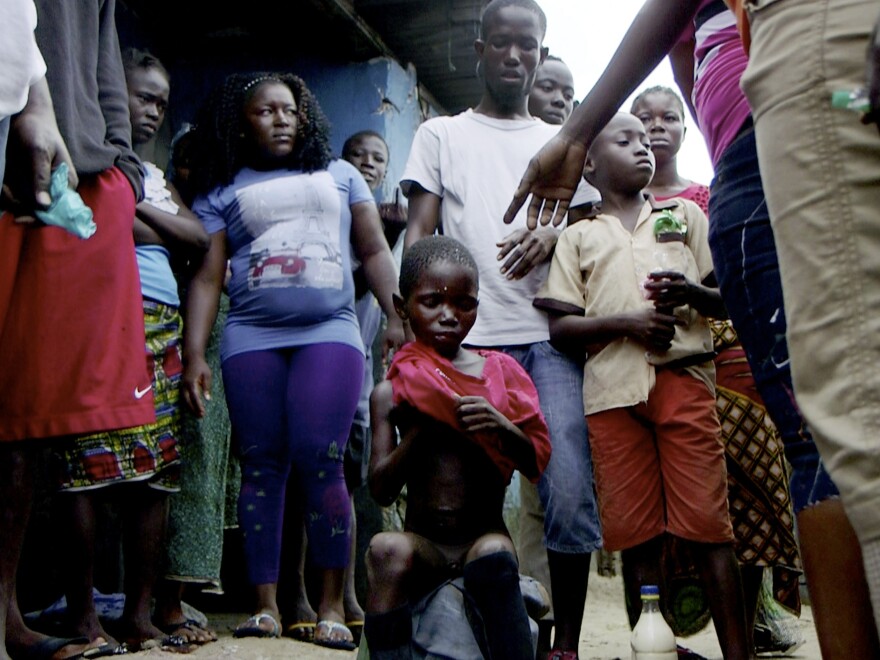It was a photo that took the Ebola outbreak raging in West Africa and made it very personal. A little boy named Saah Exco, 10 years old, lies in a crumpled heap.
As NPR's Nurith Aizenman explained Wednesday, hours before, the boy had been found naked on a beach in West Point, an impoverished neighborhood in Monrovia, Liberia's capital city. At one point, Saah had been a patient at the Ebola holding center there, for suspected cases. It's unclear when or why he was released.
But now he was on his own, drifting in and out of consciousness.
People in the neighborhood knew him. Somehow, they brought him to an alleyway. They gave him a shirt and pants. But no one wanted to hold him, to take him into a home.
Many folks in West Point — and throughout West Africa — don't think Ebola is real. Yet they were afraid. What if Ebola really is real and what if the boy had the virus? It's what NPR photographer David Gilkey, who took the photo of the boy that ran on our website, calls "an evil Catch 22."

Efforts were made to get him to a clinic but the clinic said no: The facility was not equipped to handle suspected Ebola patients.
Eventually a neighbor took Saah to John F. Kennedy Memorial Hospital in Monrovia, which cares for Ebola patients.
There was a brief glimmer of hope yesterday — word came that the boy was improving.
Then today, his fate became clear. Getty photographer John Moore, who had also taken pictures of Saah, spoke to the boy's aunt. She was checking into a Doctors Without Borders hospital in Monrovia with her five children — all of them, including her, suspected Ebola cases. The aunt said that Saah died yesterday at JFK hospital. She said the boy's mother had previously died of Ebola as well.
In a country where some believe that the virus isn't real, Saah Exco is now one of more than 500 victims, sealed in a tiny body bag.
Copyright 2021 NPR. To see more, visit https://www.npr.org.





